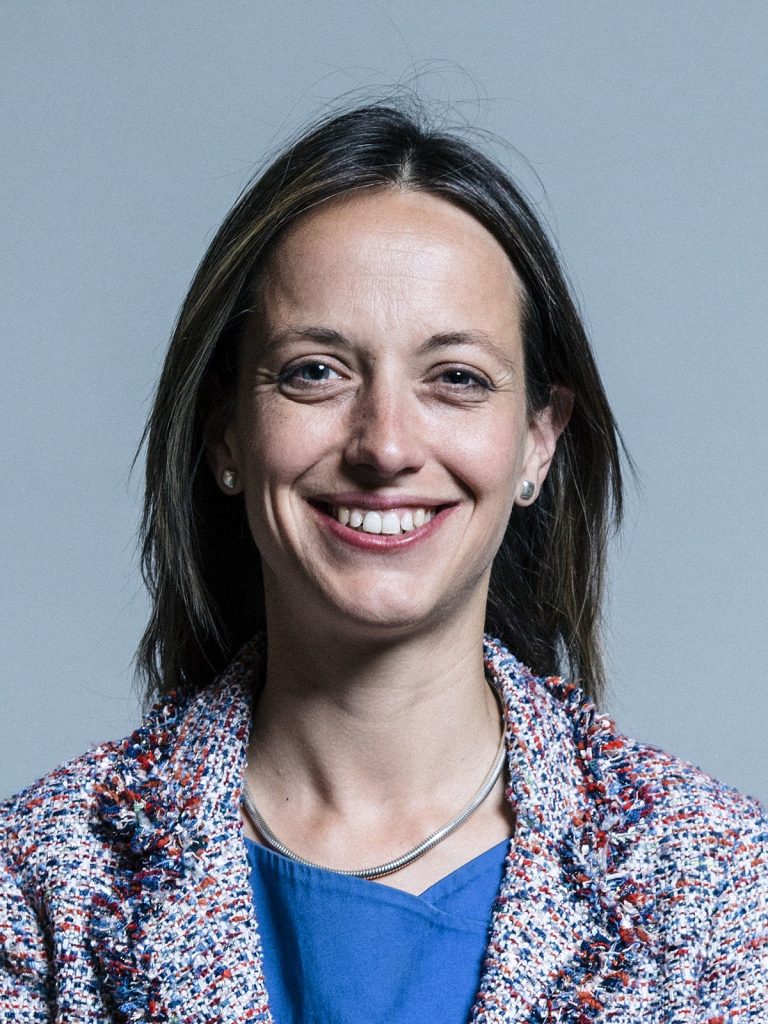Helen Whately – 2023 Speech at the NHS Confederation Conference
The speech made by Helen Whately, the Health Minister, on 27 September 2023.
Thank you, Layla [Dr Layla McCay] and thank you all for being here.
I wanted to be here, even with this broken ankle, because the NHS Confederation is a very important organisation and it is a great opportunity to meet lots of you here today.
But the topic of today’s conference – health beyond the hospital – to me, that is the clincher.
It’s something I have been wanting to talk about since the Prime Minister appointed me. But I rarely get the chance, in public, because it’s not what most people ask me about.
For instance, if I’ve got the joy of the notorious morning media round, notorious among ministers that is, I’ll likely be asked about acute hospital performance, A&E waits, and possibly discharge into social care, because of how that affects hospitals.
It often feels like the acute hospital is like the sun in the NHS solar system with everything else spinning round it. But it doesn’t have to be that way, and I suspect many of you are here because you don’t believe it should be that way.
I scarcely need to remind you of the context for this conversation. Firstly, the fact that more people are living longer with multiple health conditions. Over half of people over 55 have at least one long term condition, and that goes up to 80% of people aged over 80. And more people are living to a much greater age when they are also likely to be frail.
There are a bit under 2 million people aged over 85. And over half of people over 85 are affected by frailty. In a couple of decades that number – people over 85 – will double.
I don’t need to tell this audience about the challenges of an ageing population for our health system. But, as the Prime Minister said last week, governments must reckon with reality.
This reality means we need to do healthcare differently, for the sake of individuals and for the sake of the system as a whole.
We should start with what people want. If any of you have heard me speaking about hospital visiting, you will know that my mum has been pretty unwell this year. Even so, my mum doesn’t want to go in and out of hospital. In fact, she has to be practically dead before she agrees to going. She’s not alone in that.
We probably all know someone who is, or has been, through this – bouncing in and out of hospital. We know that it is miserable.
What most people want is to be able to stay at home, and have their healthcare on hand, from clinicians who understand them and what they need. Giving them control over what’s going on, and without being wheeled into an emergency department time after time.
Then looking at our health system, we know our emergency departments are struggling with the number of people turning up. They’ve got really good at triage and developing new models like having GPs on site and same day emergency care. But it’s really hard to get care right in an emergency department for someone who’s frail with really complex care needs – and for those people, once they are in hospital, it can be so much harder for them to get home.
Now here there is some good news: what people want and what would help our stretched acute hospitals is the same.
Now I won’t be simplistic – ministers are always looking for the silver bullet, but I have been in this job long enough to know that there is no such thing. There is no one magic thing, but what there is, is a cluster of things that make a difference.
Several of these were brought together in the Urgent and Emergency Care Recovery Plan, and are already well on their way to being offered in every area – like consistent urgent community response services, which do a great job of keeping people out of hospital when there’s a crisis.
Like virtual wards, or hospitals at home, which mean people can get the hospital-level care they need in their own home, avoiding admission or allowing earlier discharge. Like the ‘Enhanced Health in Care Homes’ model.
And scaling up intermediate care for patients following hospital discharge, to which end NHS England has just published the intermediate care framework. Among other things, this guides systems on demand and capacity planning to make sure that the amount of step-down care commissioned in each area will be enough to meet the needs of patients, particularly as demand increases during the winter months.
But there’s a particular approach which I want to focus on today, which to me is the next big thing we have to do. That is to put in place really good, proactive, community-based, multidisciplinary, proactive, anticipatory care.
Many of you will have heard of the Jean Bishop Centre in Hull, but for those of you who haven’t, I’ll give you a whistle-stop introduction.
It’s named after, obviously, Jean Bishop. For 30 years Jean paced the streets of Hull, rattling her tin, and urging passers-by to donate to charity. She borrowed a stripy outfit from Age UK and quickly became known as Hull’s ‘bee lady’ – a local legend.
She went out in all seasons – sunshine or rain, for anyone who knows Hull. This remarkable woman raised more than £125,000 for charity. She passed away 2 years ago, but her legacy lives on: Hull’s Jean Bishop Integrated Care Centre opened in 2018.
Now people talk a lot about integrated care. This is it in action. The centre’s team includes geriatricians, advanced nurse practitioners, GPs, pharmacists, therapists and social workers, all under one roof.
GPs across Hull identify patients at risk of severe frailty and refer them for a comprehensive assessment. They’ll see whoever they need to see in that multidisciplinary team. And they’ll get a tailored care plan shared with them, their GP and the hospital. A plan that reflects what they want – to help them manage their own care and stay healthy.
The centre offers the same service to care home residents too. And it works. Between 2019 and 2022, for patients aged over 80, emergency hospital admissions fell by more than 13% and A&E attendance for patients in care homes fell by almost a fifth.
And they are not the only ones doing this. For example, the ‘Age Well Team’ in Northamptonshire, with a proactive care model and a multi-disciplinary team, have seen a 5% drop in unplanned hospital admissions.
Another example – one that means a lot to me because it’s just on my doorstep in Kent – is the proactive integrated care provided by the Estuary View practice in Whitstable, which was one of the vanguards that informed the inclusion of integrated community health services and expanded neighbourhood teams in the NHS Long Term Plan.
I imagine those of you here today also have some great examples in your areas, which I’d like to learn about.
So what now? Well, I meet with James Sanderson, who you heard from just before the break, every couple of weeks, and pretty much every time we meet, I ask him about this.
Over the last few months, James and colleagues at NHS England – working with organisations like Age UK and the British Geriatrics Society, drawing from best practice across the country and the world – have been developing the proactive care framework, focused on frailty. Which will set out the combination of things that good proactive care involves – the effective use of data, holistic assessments, personalised care, multidisciplinary working, co-ordinated care and targeted support for individual patients and their carers.
The framework is coming soon to help systems put this into practice, and then the job will be to make it happen.
Now, making stuff happen can’t just be by ministerial decree – me saying it is not enough. Making things happen involves thousands of people who work in the NHS thinking, and doing, something differently. And in my experience, just telling people to do something doesn’t work – at least, not very well. We need people across the NHS to believe in this, to want to do it, and then to have the support to be able to do it.
And what I would love from you, and I recognise I am preaching to the converted here today, is to do what you can to make this happen. Because if I know anything, the answers to the problems are out there, not up here.
Before I sit down and take your questions, on my part, I can give you this assurance. People often talk about the NHS like it’s the National Hospital Service, not the National Health Service. And when the chips are down, the focus tends to be the hospitals and what’s going on in them. But I don’t let that happen on my watch.
I’m always the one who says, ‘Hold on – what about the rest of the system?’
If I go back to my solar system analogy earlier, the sun at the centre actually should be the person, the individual, whose health this is all about. Hospitals, community health services, mental health services, social care providers and so on – these are all important parts of the system.
And the future of healthcare is as much about what happens out of the hospital, as what happens in it.


